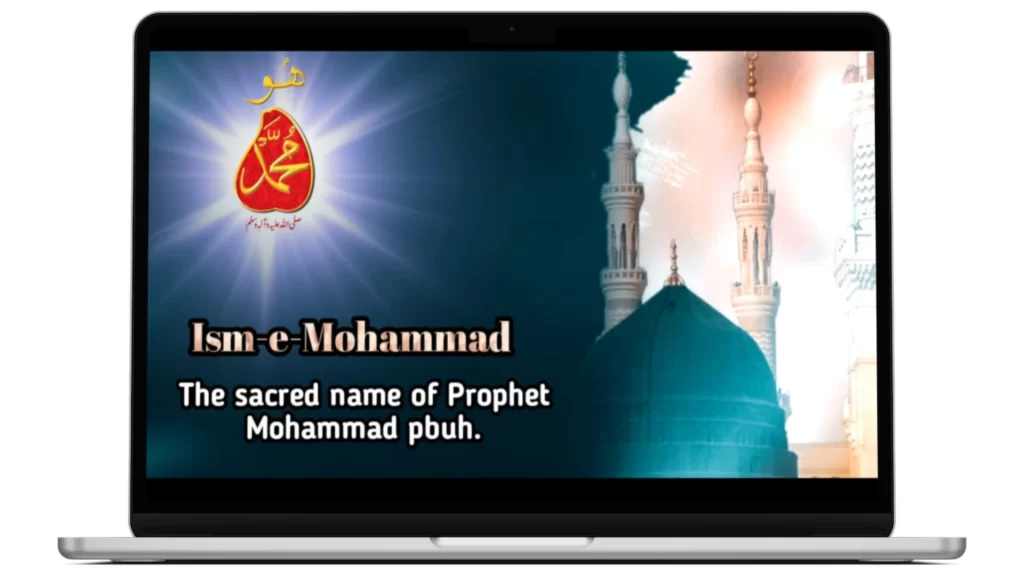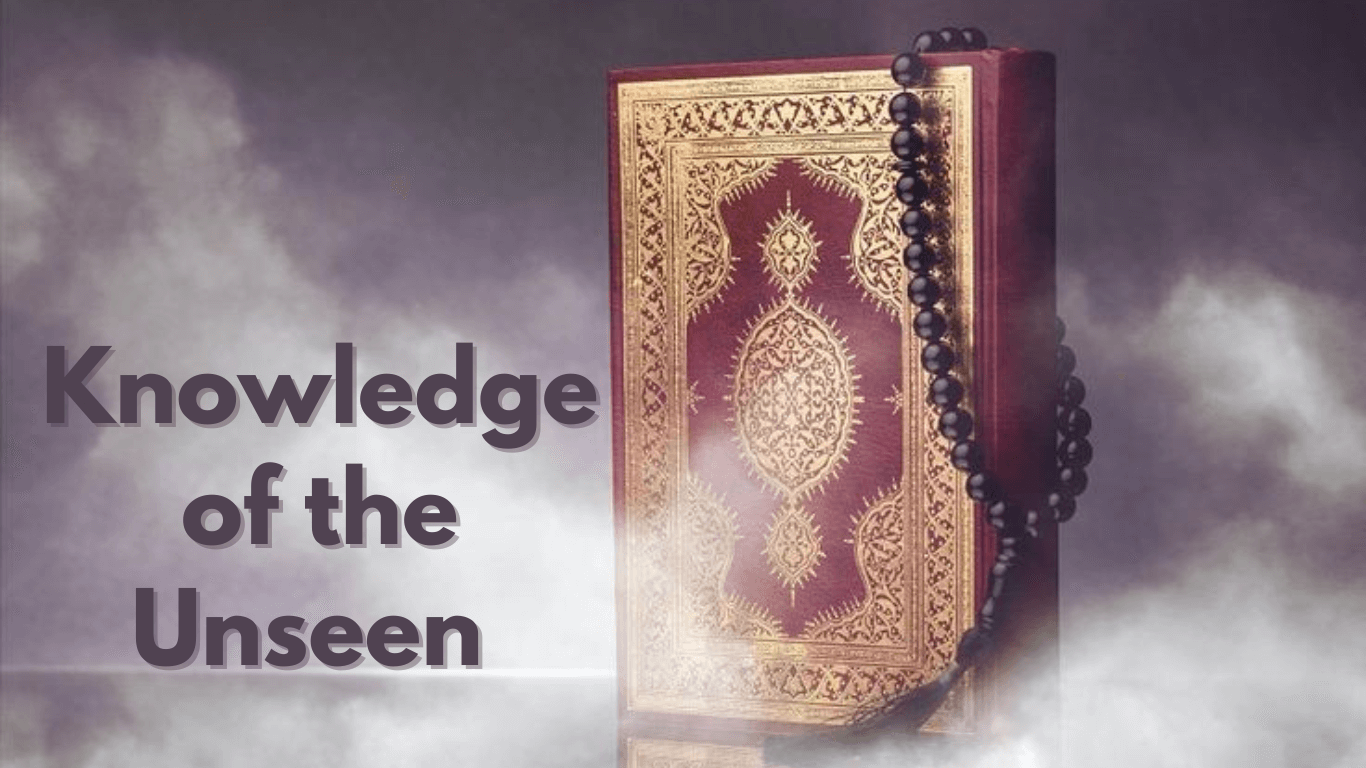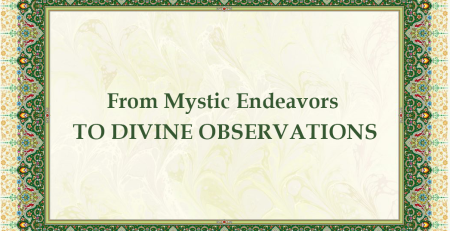Is the Knowledge of Unseen only for Prophets?
From the moment of creation of this universe until today, all the knowledge that exists was once hidden. This applies to all types of knowledge, whether it is the knowledge of Quran and Hadith, spiritual, religious, worldly or the knowledge of modern sciences. Allah has been revealing it gradually in every age according to the requirements of that age. Indeed, Allah holds complete knowledge of everything. Allah chose to transfer this knowledge in the world through the sacred being of Prophet Mohammad (pbuh).
Furthermore, it is worth noting that Allah chose to manifest all the knowledge in the inward of the Holy Prophet. Consequently, any knowledge that reaches humanity today, regardless of its field of study, when traced back to its origins, can ultimately be traced back to the fundamental source i.e. the Holy Quran. The Quran, which was once hidden, now stands as the source of knowledge.
Jamal al-Din Abu al-Fadl Muhammad bin Mukarram bin Ali bin Manzoor al-Azhari writes under the word ‘unseen’: Whatever is absent from you is unseen. He further writes about the meaning of the unseen:
And that thing is also unseen which is absent from the eyes but is present in the hearts. (Lisan al-Arab, 1:654, Taj al-Aros, 1:316)
Imam Qurtubi describes the concept of “ghaib” (the unseen) using these words:
“In Arabic language, ‘ghaib’ refers to that which is hidden from your sight. When the sun sets, it is said, ‘ghabat ash-shams’ (the sun has disappeared). The meaning of ‘gheebat’ (backbiting) is well-known, which means to speak of someone’s faults in their absence. (Al-Jami’ li-Ahkam al-Quran, 163:1)”
Definition of the Unseen

In its literal sense, the term “ghaib” (the unseen) encompasses everything that is hidden from our perception. However, in a terminological context, the unseen specifically refers to those matters that cannot be known through our senses or rational faculties. Instead, Allah has conveyed the knowledge of the unseen through the Prophets. For instance, people in Pakistan know about Medina either through personal visits or through accounts shared by pilgrims. However, to provide specific details such as a particular event occurring in a specific room of a specific house in Medina at a particular time requires knowledge that is not accessible through any apparent means.
Similarly, claiming knowledge about occurrences in a distant location without any credible source, such as describing activities happening in a house, mosque, shop, or institution, or knowing the thoughts, actions, or plans of a person in a specific country, falls under the realm of knowledge of unseen. It is also considered unseen knowledge to assert without any apparent evidence that someone possesses something within their abdomen. Therefore, the knowledge of places like Makkah and Medina is not inherently concealed, but providing intricate details without any apparent basis is what constitutes hidden knowledge. This definition of knowledge of the unseen is widely accepted among the scholars.
Sayings of scholars about the Knowledge of unseen

Here are sayings of the some famous scholars about the knowledge of unseen:
Imam Raghib Isfahai defines the knowledge of unseen in these words.
The unseen is that which the senses or the intellect cannot comprehend and it is known only from the Prophets. (Al-Mufardaat fi Ghareeb al Quran: 367)
According to Qazi Nasiruddin Beydawi the knowledge of unseen is:
Unseen is everything that neither the intellect can comprehend nor the senses. (Anwar al-Tanzil, 1:28)
Imam Fakhruddin Razi defines Ghaib as follows:
Ghaib is that which is hidden from the senses. (Al-Tafseer al-Kabeer, 2:27)
Imam Al-Zamakhshari explains the meaning of the Unseen as follows:
Unseen (Ghaib) refers to that event whose origin is known only to Allah Almighty. We only know from it what Allah has given us knowledge of. (Al-Kashaf 1:39)
Imam Qurtubi defines the unseen in these words:
The unseen is everything that the Messenger of Allah (pbuh) informed about from among the things that the intellect cannot understand. This includes things such as signs of the Day of Resurrection, the punishment of the grave, the end, the bridge of Sirat, heaven and hell. (Al-Jami ul ahkam Al-Quran 1:163)
Imam Nasfi explains the meaning of the unseen as follows:
Knowledge of unseen refers to those matters which were hidden from the eyes of the pious. The Holy Prophet informed them of such matters i.e. being raised after death, reckoning and other matters of the unseen. (Madarak al-Tanzil, 1:13).
Imam Abu Ishaq has said whilst explaining the meaning of یؤمنون) (بالغیب
What was hidden from the pious and the Prophet informed them of it is the knowledge of unseen, such as rising after death, heaven, hell. (Lisan al-Arab, 1:654)
Prophethood is Divine Blessing

Knowledge of the unseen and prophethood are inseparable. Prophethood is not a position that can be achieved by outward achievement or intellectual trickery. It is a Divine gift. The proof of prophethood being a gift and choice of Allah is proven from Quran.
Allah says: Allah knows best whom He is to assign the station of His Messenger. (6: 124)
It is narrated on the authority of Abu Huraira (RA) that the Companions asked: O Messenger of Allah! When did prophethood become obligatory for you? He said, “When Adam was between the soul and body.” (Tirmidi 3609. Al-Mustadrak al hakam 4210)
From this it became clear that prophethood is not something that Allah grants to a person based on their good deeds, knowledge or piety.
Knowledge of Unseen is Attribute of Prophethood

One of the most important and fundamental attributes of prophethood is knowledge of the unseen. Just as it is certain that one cannot attain prophethood through hard work, in the same way the concept of prophethood is also not possible without knowledge of the unseen. Rather, it would not be wrong to say that prophethood itself consists of knowledge of the unseen.
Al-Munjid which is an authentic Arabic dictionary defines ‘prophethood’ as:
It is to directly receive knowledge from Allah about the future, past or present matters and to inform people about how it. (Al-Munjid, 784).
Qazi Abul Fazl Ayyaz says:
Prophethood is derived from Naba which means news. So, it means Allah informed the prophet about the knowledge of the unseen. He is the messenger of the revelation with which Allah sent him. (Al-Shifa 1:160)
Qazi Ayaz says in another place:
Prophethood means being informed about the unseen. (Al-Shifa 1:141)
Now, we will mention some of the prophets whom Allah blessed with the knowledge of the unseen.
Prophet Adam

Allah says in Quran:
And Allah taught Adam the names of all the things. (2: 31)
Some scholars believe this knowledge of names means the names of the angels. Others believe it to be the knowledge of the names of the sons of Adam, while some think it to be knowledge of Divine names. Despite all these opinions, the Quranic verse does not suggest that this knowledge is limited to a particular species or gender. Rather, these words indicate its general application and as often explained by exegetes that, Prophet Adam was given the knowledge of the names of the whole creation.
Imam Khazan narrates this saying of Abdullah Ibn Abbas that Allah taught Prophet Adam the names of everything, even the cup and bowl. (Lubab al-Ta’wil 1:42)
Ibn Jarir al-Tabari writes:
It is narrated from Abdullah Ibn Abbas that Allah taught Prophet Adam all the names and these are the names that people know, such as human, cattle, ground, sea, mountain, donkey etc. (Jami al-Bayan, 1:170)
According to Imam Shaukani, when Allah said (کلھا) in Holy Quran,
It means that Allah taught Prophet Adam names of everything; what has happened and that is yet to take place. (Fath al-Qadir, 1:64)
Prophet Noah

Allah says in Quran:
And Nuh (Noah) submitted: O my Lord! Do not leave even a single disbeliever living on earth. Surely, if You leave them (alive), they will keep leading your servants astray and will beget none but the most wicked and extremely disbelieving children. (71: 26, 27)
Allah had informed Prophet Noah that the future generations of non-believers will also be non-believers. Whilst explaining the aforementioned verse, Imam Khazan writes as follows:
Prophet Noah made this supplication after Allah had created the last believer from the men and women of his nation. Later, Allah made the whole nation infertile. This event took place forty years before the great flood. Allah informed Prophet Noah that neither these people will believe nor will any believer be born among them in future generations. At that time, he prayed for punishment on them and Allah accepted his prayer and destroyed them all. At the time of punishment, there was no child with them because before the punishment Allah had made them all infertile. (Lubab al-Ta’wil 4: 314)
Prophet Ibrahim

Allah says in Quran:
And in the same way, We showed Ibrahim (Abraham) all the kingdoms of the heavens and the earth (i.e. the wonders of Our creation) so that he might be one of those who possess the eye of certitude. (6: 75)
In the interpretation of this verse, exegetes have quoted different sayings.
Imam Baghwi has quoted the saying of Abdullah Ibn Abbas that (خلق السموات والارض) in the verse means the creation of the heavens and the earth. (Tafsir al-Baghawi 2:108)
Ibn Jarir al-Tabari quotes the following saying of Mujahid, which has also been narrated by Imam Nasafi, Imam Ibn Kathir and other exegetes:
The seven heavens and everything within them was opened for Prophet Ibrahim. He even saw the Throne. (Jami’ al-Bayan, 5:160)
Imam Khazan quotes the words of Qatadah ibn Di’amah al-Sadusi:
“The kingdom of the heavens refers to the sun, the moon and the stars. And the kingdom of the earth means mountains and trees, etc.” (Madarik al-Tanzil, 2:19)
Imam Ibn Kathir quoted the saying of Ibn Abbas (RA), which was narrated by Ibn Abi Hatim as follows:
Allah, the Exalted revealed the hidden and the visible of everything for Prophet Ibrahim and nothing of the deeds of the men remained hidden from him”. (Tafsir al-Quran al-Azeem, 2:150)
Prophet Isa (Jesus)

Prophet Isa was also the chosen prophet and messenger of Allah. He is also known as Kalimatullah and Ruhullah. Allah the Almighty, mentions the dignity of prophet Isa in Holy Quran as:
When the angels said: O Maryam (Mary), surely, Allah gives you glad tidings of a (particular) Word from Him named the Messiah, ‘Isa, the son of Maryam (Jesus, the son of Mary), who would be eminent and exalted, (both) in this world and in the Hereafter, and would be of those who are exceptionally intimate servants of Allah blessed with His nearness. (3: 45)
Allah had given him numerous miracles and wonders. He was also given the knowledge of the unseen. Allah says in Quran:
I inform you of (all) what you have eaten, and what you have hoarded in your houses. Truly, there is a sign in it for you if you believe. (3: 49)
But it is a fact that the knowledge of the unseen is specific to prophethood. Allah is the owner of the unseen and He can give the knowledge of the unseen to whomever He wills. Among them may be the Prophets as well as the Companions of the Prophet (pbuh), the Fakirs (Saints) and ordinary people.
Allah gave the knowledge of the unseen to His prophets and messengers by degrees, that is, some prophets were granted it once, some repeatedly and some permanently. This is so that the argument may be established on the superiority that Allah has given to some over others.






Comments (20)
Very well explained!
Indeed, Allah grants the knowledge of unseen to whom He wills.
Very informative
I like this artical
Best article
Allah gave the knowledge of the unseen to His prophets and messengers by degrees, that is, some prophets were granted it once, some repeatedly and some permanently.
Indeed true Allah is the one who grants knowledge 👍🏻🌹
Allah says:
Allah knows best whom He is to assign the station of His Messenger. (6: 124)
Impressive article
Nice article
Very good article and explains a lot
Very interesting and informative
Allah gave the knowledge of the unseen to His prophets and messengers by degrees, that is, some prophets were granted it once, some repeatedly and some permanently.
Behtareen ❤️
Very Informative Article
May Allah bestow us with right kind of knowledge
Ghaib is that which is hidden from the senses. (Al-Tafseer al-Kabeer, 2:27)
Unique and authentic article
Imam Qurtubi describes the concept of “ghaib” (the unseen) using these words:
“In Arabic language, ‘ghaib’ refers to that which is hidden from your sight. When the sun sets, it is said, ‘ghabat ash-shams’ (the sun has disappeared). The meaning of ‘gheebat’ (backbiting) is well-known, which means to speak of someone’s faults in their absence. (Al-Jami’ li-Ahkam al-Quran, 163:1)”
Imam Fakhruddin Razi defines Ghaib as follows:
Ghaib is that which is hidden from the senses. (Al-Tafseer al-Kabeer, 2:27)